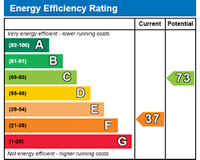Legal and Safety Regulations for Letting Your Property
Gas Safety Certificate
If you have any gas appliances in your property you are legally required to have these tested annually under the Gas Safety (Installation and Use) Regulations 1994 as amended by the Gas Safety (Installation and Use) Regulations Amendment 1998.
Electrical equipment
New regulations came into force on the 1st June 2020 that all rental properties are required to have an electrical inspection and report on the condition (EICR) of the property by a qualified person. This means that your property must meet the 18th Edition of the Wiring Regulations, which are published as British Standard 7671.
The new changes will apply to all new tenancies from the 1st July 2020 and for pre-existing tenancies this must be carried out prior to 1st April 2021. The electrical certificate will last for a maximum of 5 years.
We also recommend that regular testing of portable appliances is also carried out.
What electrical items need to be PAT tested?
A usual ‘rule of thumb’ for PAT testing is that anything that has an electrical plug and can be moved should be tested.
This can be all sorts of things, including:
- Microwaves and portable grills
- Toasters
- Kettles and coffee machines
- Televisions
- Stereos
- Lamps
- Vacuum cleaners
- Larger appliances such as fridges, freezers, washing machines and dishwashers, may seem like a fixed appliance, but for testing purposes, they are considered portable because they have a plug.
- Similarly, some items that are fixed to a surface but have a plug socket, like a heated towel rail, also fall under the PAT testing recommendations.
For further information please see https://www.gov.uk/government/publications/electrical-safety-standards-in-the-private-rented-sector-guidance-for-landlords-tenants-and-local-authorities/guide-for-landlords-electrical-safety-standards-in-the-private-rented-sector
Smoke alarms
The Smoke & carbon monoxide alarm (amendment) Regulations 2022 came into force on the 1st October 2022 and you must ensure that:-
- At least one smoke alarm is equipped on each storey of their homes where there is a room used as living accommodation. This has been a legal requirement in the private rented sector since 2015.
- A carbon monoxide alarm is equipped in any room used as living accommodation which contains a fixed combustion appliance (excluding gas cookers).
- Smoke alarms and carbon monoxide alarms are repaired or replaced once informed and found that they are faulty.
Failure to comply with these regulations could result in the local authority issuing a Remedial Notice. If the local authority is satisfied that a Landlord has failed to comply with a Remedial Notice, they can impose a penalty charge which cannot exceed £5000
As part of our Management Service, we will check smoke alarms at the start of each new tenancy to ensure they are in working order.
Gas Appliances

If you have any gas appliances in your property you are legally required to have these tested annually.
Energy Performance Certificates (EPC)
From October 1 2008, the Energy Performance of Buildings Directive became effective across the private rented sector. This legislation states that all residential rental properties must have a valid Energy Performance Certificate (EPC) for tenants to view before contracts are signed.
EPC tells you and the prospective tenant/s how energy efficient your property is; the impact the property has on the environment and includes recommendations on ways to improve the property’s energy efficiency. The EPC must be made available to all prospective tenants. Your local letting agent can arrange for an EPC to be prepared on your behalf.
Before your property is marketed it must have a current Energy Performance Certificate. New regulations came into force on the 1st April 2018, requiring let residential property to have a minimum rating of an “E”. If below an “E” the property must be brought up to standard prior to marketing the property to let.
Currently there is a proposal to see the raising of the energy performance standard to an energy efficiency rating of C, for new tenancies from 2025 and all tenancies from 2028.
Furniture and Furnishings
To minimise the risk of fire, the Furniture and Furnishings (Fire) (Safety) Regulations 1988 set out requirements for soft furnishings, such as cushions, beds, sofas and pillows. It’s illegal to provide furnishings that do not comply.
Furniture and upholstery covered by the regulation includes:
- beds, headboards of beds, mattresses (of any size);
- sofa-beds, futons and other convertibles;
- nursery furniture;
- garden furniture which is suitable for use in a dwelling;
- scatter cushions and seat pads;
- pillows; and
- loose and stretch covers for furniture
Furniture and upholstery not covered by the regulation includes:
- sleeping bags
- bed-clothes (including duvets)
- loose covers for mattresses
- pillowcases
- curtains
- carpets
- antique furniture
- furniture made before 1950
How can the Landlord tell the furniture complies?
Furniture that complies with the regulation should display a permanent label – this label should be displayed on both new and second-hand furniture; examples of labels can be found below. Landlords should only purchase furniture and furnishings that carry a permanent label and/or ensure that the furniture complies with BS7177. If a Landlord is unsure, they should contact their local trading standards department for advice.
Should a label become detached from the furniture it is recommended that the Landlord retains it in a safe place, to ensure that they can prove the furniture complies with the regulation. It may be prudent to retain receipts proving purchase of the furniture or furnishings.
Deposit Protection
As part of the Housing Act 2004 the Government introduced tenancy deposit protection for all assured shorthold tenancies (ASTs) in England and Wales where a deposit is taken. From April 6th 2007, all deposits paid under an Assured Shorthold Tenancy should be protected within 30 calendar days of receipt by the landlord.
The legislation aims to ensure that tenants who have paid a deposit to a landlord or letting agent and are entitled to receive all or part of it back at the end of that tenancy, actually get it.
Kings & Co are registered with the Deposit Protection Service whose funds are secured with UK Government approved banks.
Kings & Co Lettings are members of:
- The Eastern Landlords Association
- Client Money Protection with Lonsdale Insurance Brokers
The Property Ombudsman
The Property Ombudsman (TPO) scheme provide a free, fair and independent service for dealing with unresolved disputes between registered agents and tenants or landlords of property in the UK. The TPO is a member of the British and Irish Ombudsman Association and follows the standards and rules of the Association. The Ombudsman is totally independent of TPO registered agents and reports directly to the TPO Council, which has a majority of non-industry members.
Energy Performance Certificate (EPC)

All residential rental properties must have a valid Energy Performance Certificate (EPC) for tenants to view before contracts are signed.



